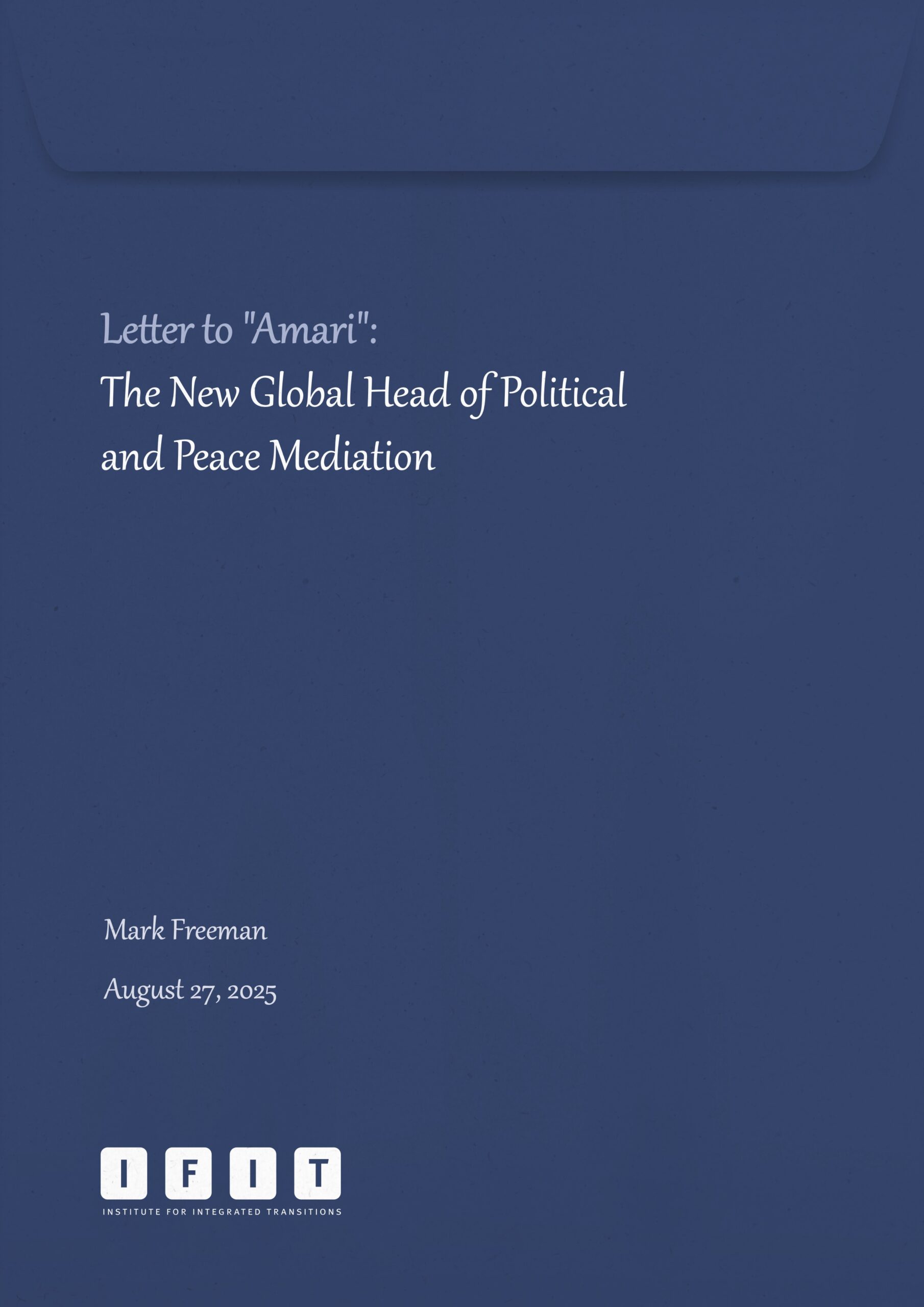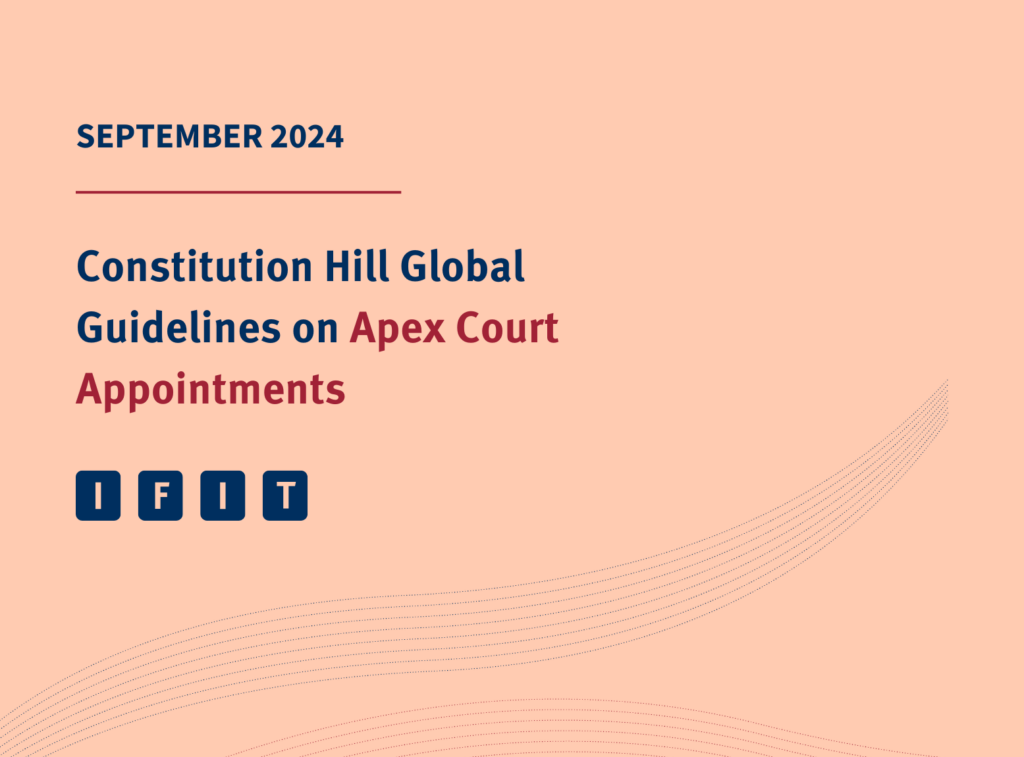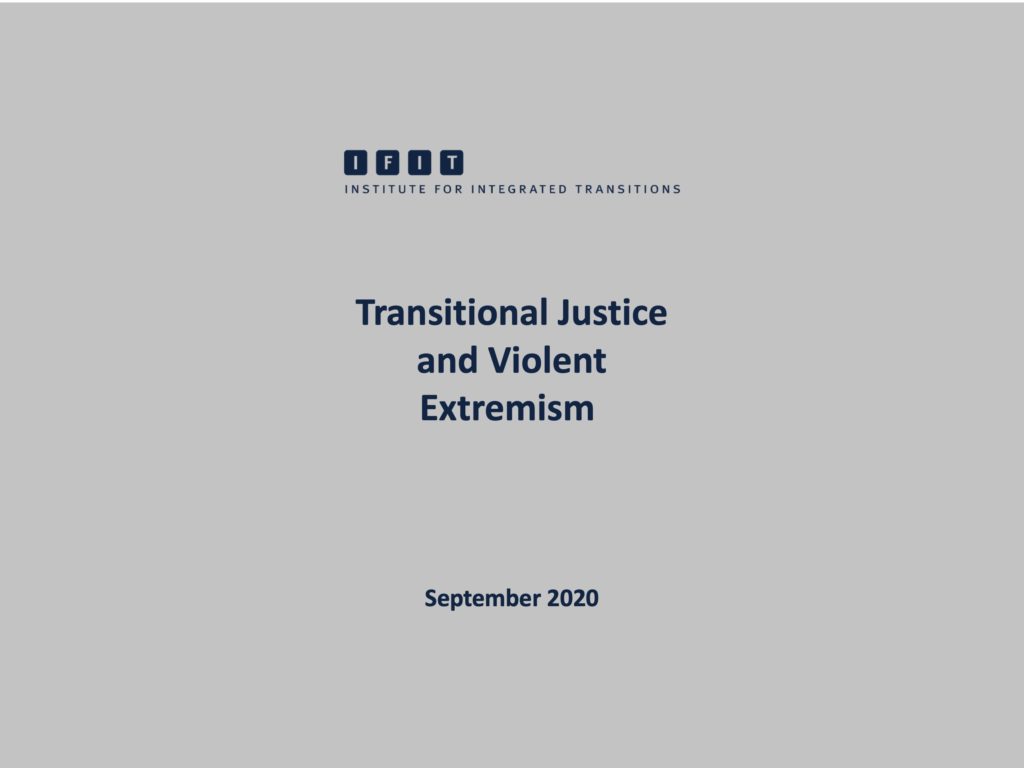Publication
/ justice
Aug 2025
Letter to “Amari”: The New Global Head of Political and Peace Mediation
In this publication, which takes the form of a personal letter, we imagine responding to “Amari” – the newly appointed “Global Head of Political and Peace Mediation” – who has requested our advice on whether, when and how to tackle transitional justice issues that are bound to arise in the new role.
Authored by IFIT’s founder Mark Freeman in collaboration with members of IFIT’s Law and Peace Practice Group, the letter offers incisive analysis and frank advice to the fictional Amari in anticipation of the fictional appointment.
In all, the letter answers 11 questions from Amari and stresses the need for a substantial reformulation of the underlying claims and assumptions of transitional justice in the context of political and peace mediation.
“It is evident that chronic failures in negotiation and mediation – combined with growing and more resistant forms of armed groups, warfare, weapons and autocracy – are testing old assumptions about the possibilities for meaningful transitional justice (TJ)”, the letter states. “What is harder to understand is the response. Modern TJ’s dogmatic claims and pretensions – and their mismatch to both the objective constraints of negotiation and the new conflict landscape – make matters worse rather than better. What is called for is twofold: a reimagined approach to TJ and a more results-oriented paradigm of negotiation. A reimagined TJ would become a catalyst rather than a complicator of transition, and a reimagined negotiation paradigm would prioritise ‘getting to yes’ above all else”.
The DOI registration ID for this publication is: https://doi.org/10.5281/zenodo.16947204
You may also be interested in
In this publication, which takes the form of a personal letter, we imagine responding to “Amari” – the newly appointed “Global Head of Political and Peace Mediation” – who has requested our advice on whether, when and how to tackle transitional justice issues that are bound to arise in the new role.
Authored by IFIT’s founder Mark Freeman in collaboration with members of IFIT’s Law and Peace Practice Group, the letter offers incisive analysis and frank advice to the fictional Amari in anticipation of the fictional appointment.
In all, the letter answers 11 questions from Amari and stresses the need for a substantial reformulation of the underlying claims and assumptions of transitional justice in the context of political and peace mediation.
“It is evident that chronic failures in negotiation and mediation – combined with growing and more resistant forms of armed groups, warfare, weapons and autocracy – are testing old assumptions about the possibilities for meaningful transitional justice (TJ)”, the letter states. “What is harder to understand is the response. Modern TJ’s dogmatic claims and pretensions – and their mismatch to both the objective constraints of negotiation and the new conflict landscape – make matters worse rather than better. What is called for is twofold: a reimagined approach to TJ and a more results-oriented paradigm of negotiation. A reimagined TJ would become a catalyst rather than a complicator of transition, and a reimagined negotiation paradigm would prioritise ‘getting to yes’ above all else”.
The DOI registration ID for this publication is: https://doi.org/10.5281/zenodo.16947204






